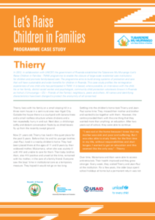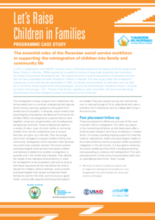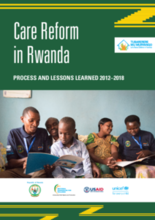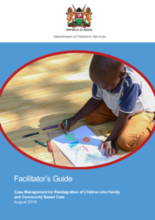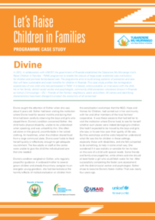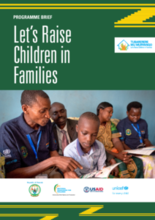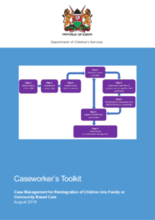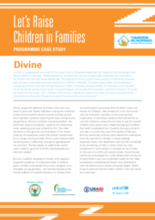Displaying 431 - 440 of 991
This study used a qualitative research design to uncover female care-leavers’ experience of aftercare in Ethiopia in 2017.
The goal of this study was to examine the contribution of natural mentoring to the improvement of life skills among youth in care in core areas of education, employment, and avoidance of risk behaviours while controlling for personal characteristics and placement history.
This case study profiles the reintegration experiences of one child who has participated in the Tubarerere Mu Muryango (Let’s Raise Children in Families - TMM) programme in Rwanda.
This case study profiles the reintegration experiences of one child who has participated in the Tubarerere Mu Muryango (Let’s Raise Children in Families - TMM) programme in Rwanda.
This paper documents the care reform process and presents key lessons learnt. It is based on a review of Rwandan policy and programme documents and on interviews and focus group discussions with 65 stakeholders.
This Facilitator’s Guide is for use by the varied facilitators of the 'Promoting Family- or Community-Based Care Using a Case Management Approach Workshop,' including national and county trainer of trainers from Kenya's Department of Children's Services, and trained staff from other care reform partners.
This case study profiles the reintegration experiences of one child who has participated in the Tubarerere Mu Muryango (Let’s Raise Children in Families - TMM) programme in Rwanda.
This programme brief is part of a package of materials documenting successes and lessons learnt from implementation of the Tubarerere Mu Muryango (TMM) child care reform programme between 2012 and 2018.
This toolkit contains caseworker forms for: conducting child and family assessments, consent and assent from caregivers and children, case planning, placement of children and young adults, monitoring, case reviews, case closures, referrals, caregiver and child feedback, and more.
This case study profiles the reintegration experiences of one child who has participated in the Tubarerere Mu Muryango (Let’s Raise Children in Families - TMM) programme in Rwanda.

